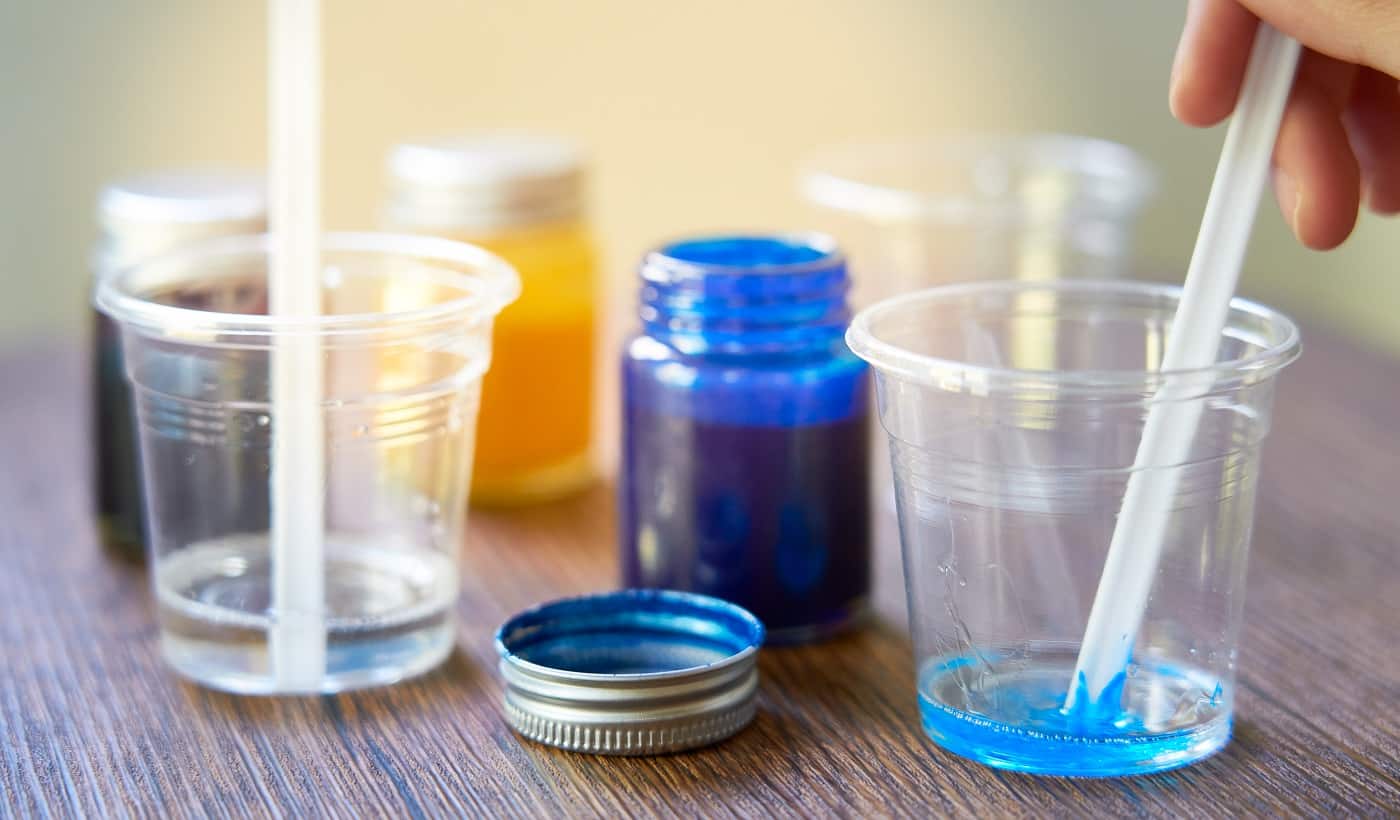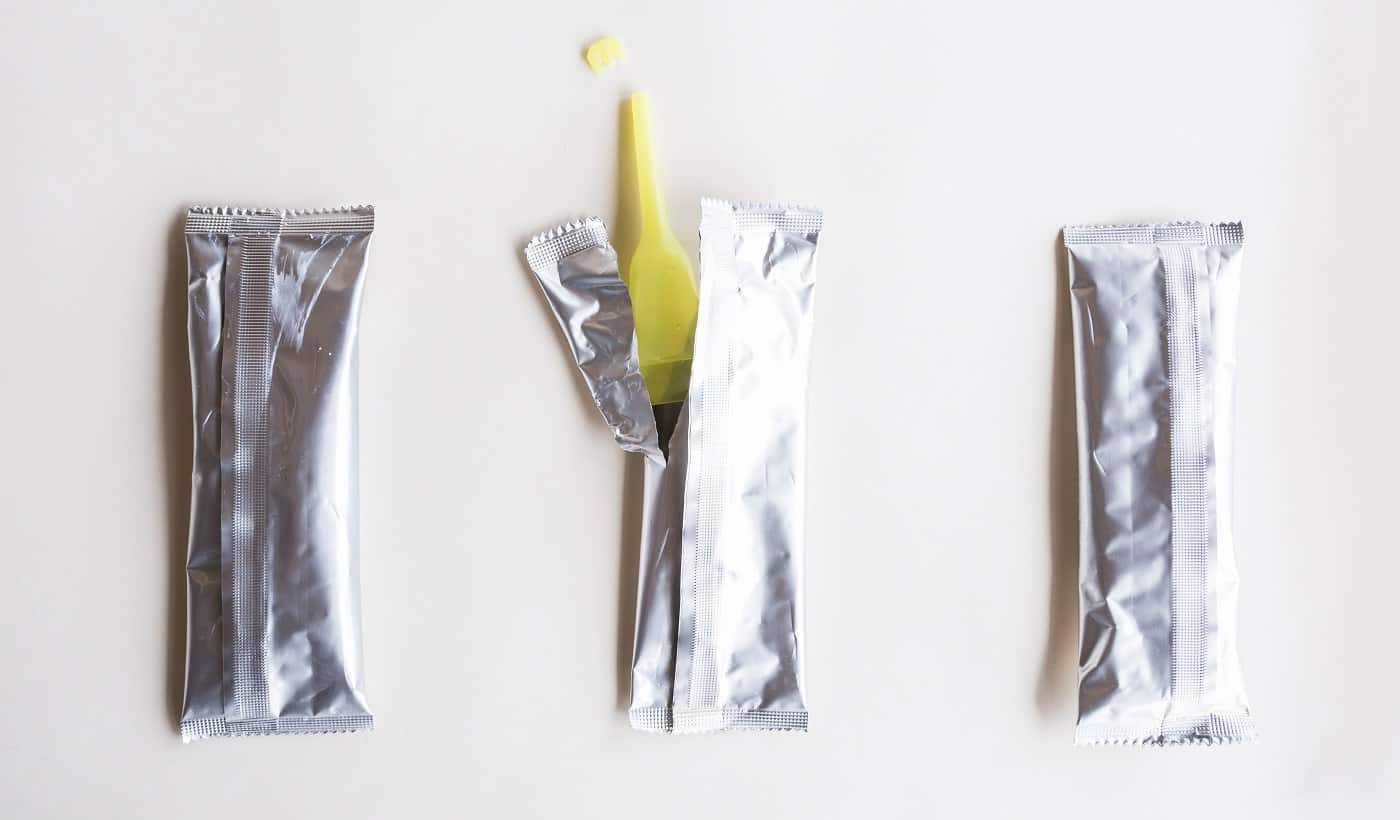In the world of adhesives, epoxy and super glue are two dominating forces.
![The Difference Between Epoxy & Super Glue [Clear Winner?] Master working on crafts with glue. High quality photo](https://homesthetics.net/wp-content/uploads/2021/09/The-Difference-Between-Epoxy-Super-Glue-01.jpg)
Super glues are the ones that have made it to our house. So, whenever we break something, the thought of gorilla gluing comes to our minds.
On the other hand, epoxies are used for everything from making cute jewelry to heavy construction. The substance is more popular than ever, and you can't hide from it. Moreover, finding epoxy resins have become more accessible, and numerous variants of it have cropped up.
So, if you are searching for a strong adhesive for binding things, naturally, epoxies and super glues come to your mind. The decision can be tricky because you will hear good and bad things about both adhesives.
Hence, to give you a breather, we created a guide stating the differences between the substances. But do you think there can be a clear winner among them?
Let's investigate their bonds and find out!
Epoxy And Super Glue Differences

Most of us are more or less familiar with both of these adhesives. Hence, without wasting any time, we will jump straight into finding things that make them different. Keep an eye on the points that matter the most to you and make a thoughtful purchase.
Key Differences Between The Adhesives
-
Base Materials
The most basic difference seen is the mixture that forms the glue. Super glues are made of compound cyanoacrylate, whereas epoxy works by combining resin with a hardener.
You can use super glue right from its packaging. However, in the case of epoxy, you will need to mix the resin with the hardener.
Besides, when you start applying super glue, it dries instantaneously because the cyanoacrylate tends to form immediate bonds with moisture. Whereas, as a polyepoxide, epoxies don't tend to follow the steps of super glue, and take some time to dry.

-
Properties
When it comes to using adhesives, properties decide the strength and lasting capabilities. We do know that both super glue and epoxy form strong bonds. But, there is a slight difference between how the two work.
You may observe that things joined by super glues may still break, mainly because of excessive pressure. This is due to the low shear strength of the adhesive. Even the slightest off-angle pressure can damage the bond.
On the other hand, epoxies have one of the strongest bonds provided by an adhesive. It can take both shear and peel stress giving it the desirable durability to be used in places that face regular stress.

-
Where To Use
Picking up an adhesive may seem easy, but the reality is quite different. So, you will need to focus on its desired outcome in a project.
Super glue is great for small-scale jobs where a strong bond is required quickly. This has helped super glue become global, and now it's even used in surgeries. However, there are some substances like glass and fabric where super glue falls short.
On the other hand, epoxy is the holy grail of adhesives because of its versatility. It has wide usage in industries and commercial sectors because of its strong and durable bond. Moreover, epoxies can also work as a sealant, unlike super glue.
-
Ease Of Use
To be honest, everyone doesn't require glues to have everlasting properties. But a common deciding factor for buying adhesives is the application process.
Super glue dominates this territory as you can use it directly out of the tube. Also, the narrow applicators in most variants make it easy for you to use for gluing anything together.
However, in the case of epoxy, preparation takes up a lot of time. You will need to mix the resin with the hardener in correct proportions to get desired results. This is an advantage needed in construction or industrial use, but people who want a quick fix wouldn't care for it.

-
Drying Time
Any glue with a low drying time helps to fix things quickly. Super glue has pioneered this property because it starts drying as soon as it comes out of the tube. This is perfect for things like fixing an old shoe or a broken toy.
However, there are times when the slow curing of epoxies comes to the rescue. So, while building something new or fixing things like a glass bowl, using it makes the task easier. Also, adding a bit more hardener to the mix can fetch you more time to work with the materials.
-
Cleaning Up
Have you spilled super glue all over your hands? Don't worry, as using a bit of acetone can clear up the mess. This hack also works for cleaning up super glue residues or for loosening the bond. Solvents like gamma-butyrolactone or acetone break the bonds, giving the adhesive low solvent resistance.
On the other hand, epoxy dries hard, and it's almost impossible to dislodge it after the drying period is over. If you have made a mistake, the only way to remove it is by using white vinegar or acetone before it has cured.

- Fast drying
- Easy to use
- Effortless clean-up
- Easily available
- Eco-friendly
- Strong bond
- Moisture resistant
- Works with various materials
- Available in different formulations
- Excellent for small scale jobs
- Good for home use
- Doesn’t work with glass
- Low shear strength
- Not solvent resistant
- Can’t fix big gaps
- Bonds easily to skin
- Superior adhesion bond
- Versatile usage capability
- Great for fixing gaps and cracks
- Easily available
- High shear resistance
- Resistant to various environmental factors
- Good for household, industrial, and commercial usage
- Solvent resistant
- Doesn’t bond with skin
- Long curing time
- Difficult to remove
- Produces heat during curing
- Difficulty of use
- Resin and hardener mixture has short life

Epoxy vs. Super Glue Verdict
When it comes to using adhesives, the main goal is to make sure that the bond has the desired strength. So, to achieve that, you will need to search for glue based on different aspects of the project.
Having said that, we do think that most people would prefer using super glue as it's easy to use. However, epoxy would be a better choice if you need to fix something like a glass vase or anything precious.
Honestly, we wouldn't declare a winner among the contenders as both are equally helpful for the right jobs. Hence, we would suggest you assess the needs and expectations before selecting an adhesive.
That's all for today. Do let us know if you have any queries, and we will try to help.
Related Articles
13 Best Epoxy Spray Paint Resins
How to Remove Gorilla Glue From Skin Safely & Easily
11 Best Permanent Fabric Glues
11 Best Glue for Paper & Paper Mache
10 Best Ceramic and Porcelain Glue
11 Best Glue for Polypropylene
3 Best Adhesive for Carbon Fiber
How to Color Clear Epoxy Resin [Coloring Resin
How To Fix Radiator Leak With Epoxy+ Best Radiator Repair Epoxy
Epoxy Garage Floor 101 [All You Need to Know]
Mold Release Guide + Best Epoxy Release Agents
Surfaces Resin Won’t Stick to [All You Need to Know]
Heat Resistant Epoxy 101 [A Guide for High Temperatures]
Epoxy Cement Guide 101 [How to Repair Concrete with Epoxy]
How To Mix Epoxy 101 [Measuring & Mixing Epoxy Resin Guide]
How To Harden Sticky Resin [Uncured Epoxy Solutions]
How To Fix Epoxy Mistakes [Tackling Common Epoxy Problems]
6 Best Pressure Pot for Resin Casting Right Now
Polyurethane Glue 101 | All You Need to Know
Gorilla Glue vs. Super Glue | Strengths, Weakness + Winner?
9 Best Glue for Hardwood Floors
7 Best Adhesive for Acoustic Foam
